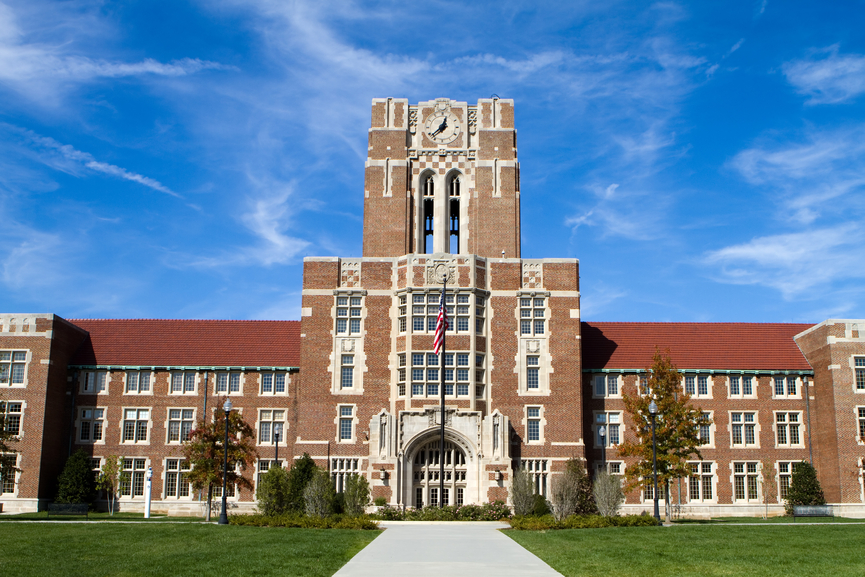The prevalence of autism spectrum disorders (ASD) has risen significantly since first described in the 1940s. The Center for Disease Control estimates currently 1 in 68 children in the United States lives with an ASD diagnosis, and that 46% of those diagnosed have average to above average intelligence. A large body of literature describes the significant, life-long difficulties faced by many individuals diagnosed with ASD. The support needed for college students diagnosed with more traditional disabilities are well documented. However, information is lacking in regard to effectively supporting the college instruction of students with Asperger’s Disorder and how to support their navigation of a campus society.
Researchers explored the topic of providing effective supports to college students diagnosed with Asperger’s Disorder. Investigators convened a panel of experts to provide input on the topic, and then used a Delphi surveying method to categorize common themes identified by panel members.
The survey resulted in the creation of the Benchmarks of Effective Supports for College Students with Autism Spectrum Disorders. This tool is available as a PDF file for use in your own college assessment:
Attachment: Benchmarks of Effective Supports for College Students with ASD
Research conclusions included:
1. Social Challenges, Independent Living Skills, and Cognitive Organizational Skills were mentioned as a need more often by expert panelist than was Academic Challenges. This suggests panelists agree that students diagnosed with Asperger’s Disorder are, generally, intellectually capable of performing in the classroom but struggle with the social and organizational aspects of the college lifestyle;
2. Resources dedicated to meeting the Social Challenges of students diagnosed with Asperger’s Disorder are considered integral to effective college support;
3. Traditional disability services are ineffective for supporting this student population due to: (a) its historical focus on meeting academic rather than social needs, (b) its lack of resources, and (3) its general lack of expertise regarding the disorder;
4. The panel of experts connected self-advocacy and disclosure more to academic success than to other aspects of campus life;
5. Mental health services are identified as a necessary support for college students diagnosed with Asperger’s Disorder.
These services, however, were mentioned fewer times by the panelist than the need for:
- dedicated staff with specialized knowledge to provide supports;
- having a well-informed campus community, and
- utilizing a well-staffed support program with expertise in the disorder. An equal number of panelists mentioned the need for having staff to teach students to identify on-campus resources and supports, which would generally include student mental health services;
6. The panel of experts revealed faculty and staff attitudes may play a role in college success for college students with Asperger’s Disorder. More panelists expressed a need, however, for increased on-campus knowledge and information about the disorder.
7. Finances and Resources were identified by the majority of panelists as barriers to academic and non-academic success alike due to the high cost of hiring personnel with expertise.
Their research was published in the peer-reviewed Southern Regional Council on Educational Administration Yearbook 2013; Ellison, Clark, Cunningham, and Hansen (2013).
by Dr. Marc Ellison
Gabriela Lemos was born in Porto Alegre, Brasil, and was raised in San Antonio, Texas. She is currently a student at UTSA, graduating in December 2014 with a Bachelor degree in English. Brie states that she loves language and words, and the way in which people communicate with each other. She has always been interested and attracted to the autism community. “I find those on the spectrum to be incredible in so many ways, and I believe we can all learn from each other in our different strengths and weaknesses. I would love to use my talents to aid those who are not as strong in areas which I have confidence, and in turn receive an infinite amount of lessons and aid from those who I work with. Everything you send out, comes back to you, and I plan to practice sending out love and compassion every day”. We feel so fortunate to offer Brie’s talent of writing as well as her passion for autism awareness every week through our Aspergers101 Weekly.



Thank you for sharing, Jennifer! How wonderful that those on the ASD Spectrum are being recognized and getting support at the college level. That is a huge deal. Who knows what the future brings to those with high functioning autism…they can channel their gifts and have a voice in collegiate settings for once. SPLENDID!